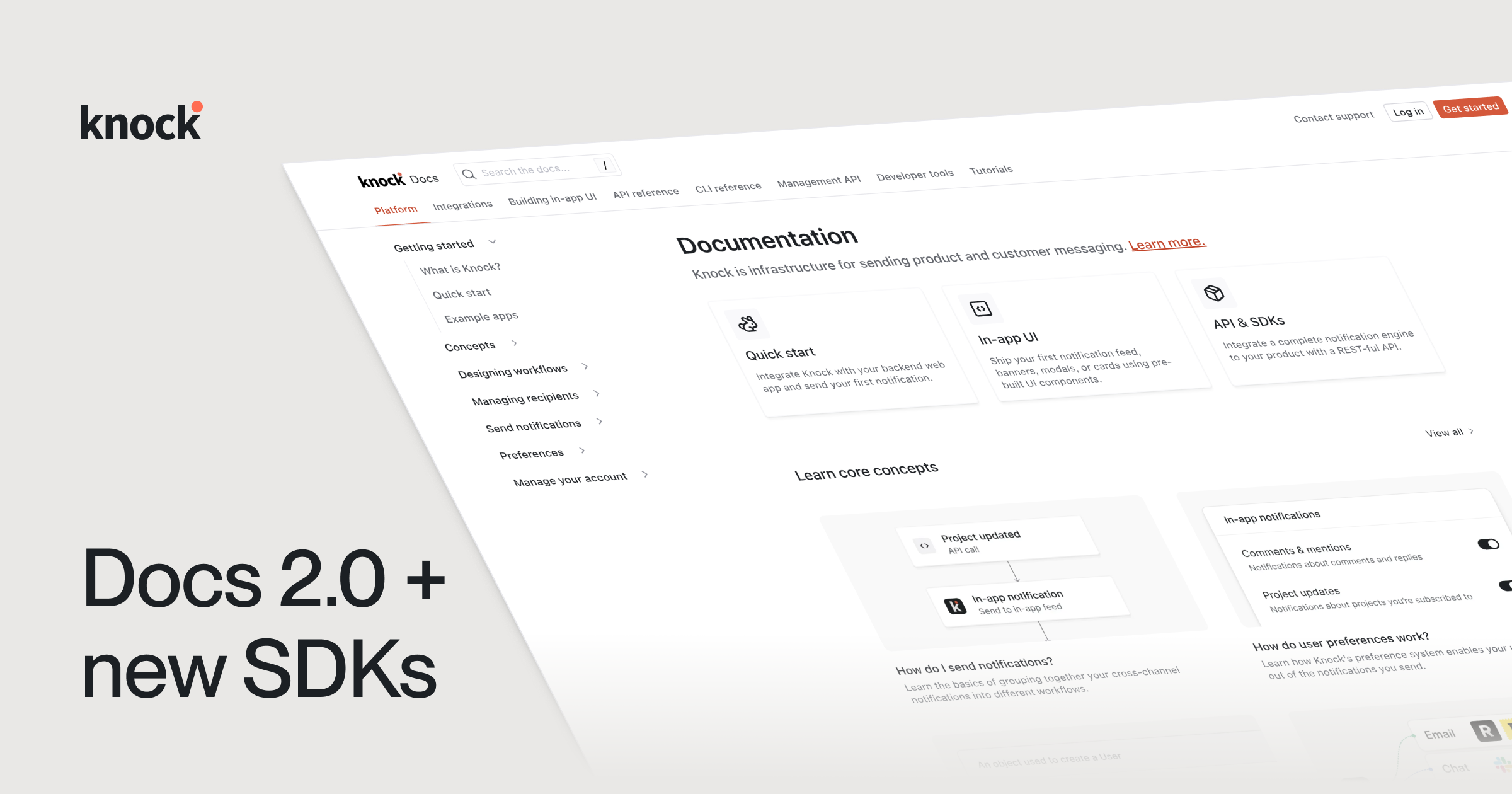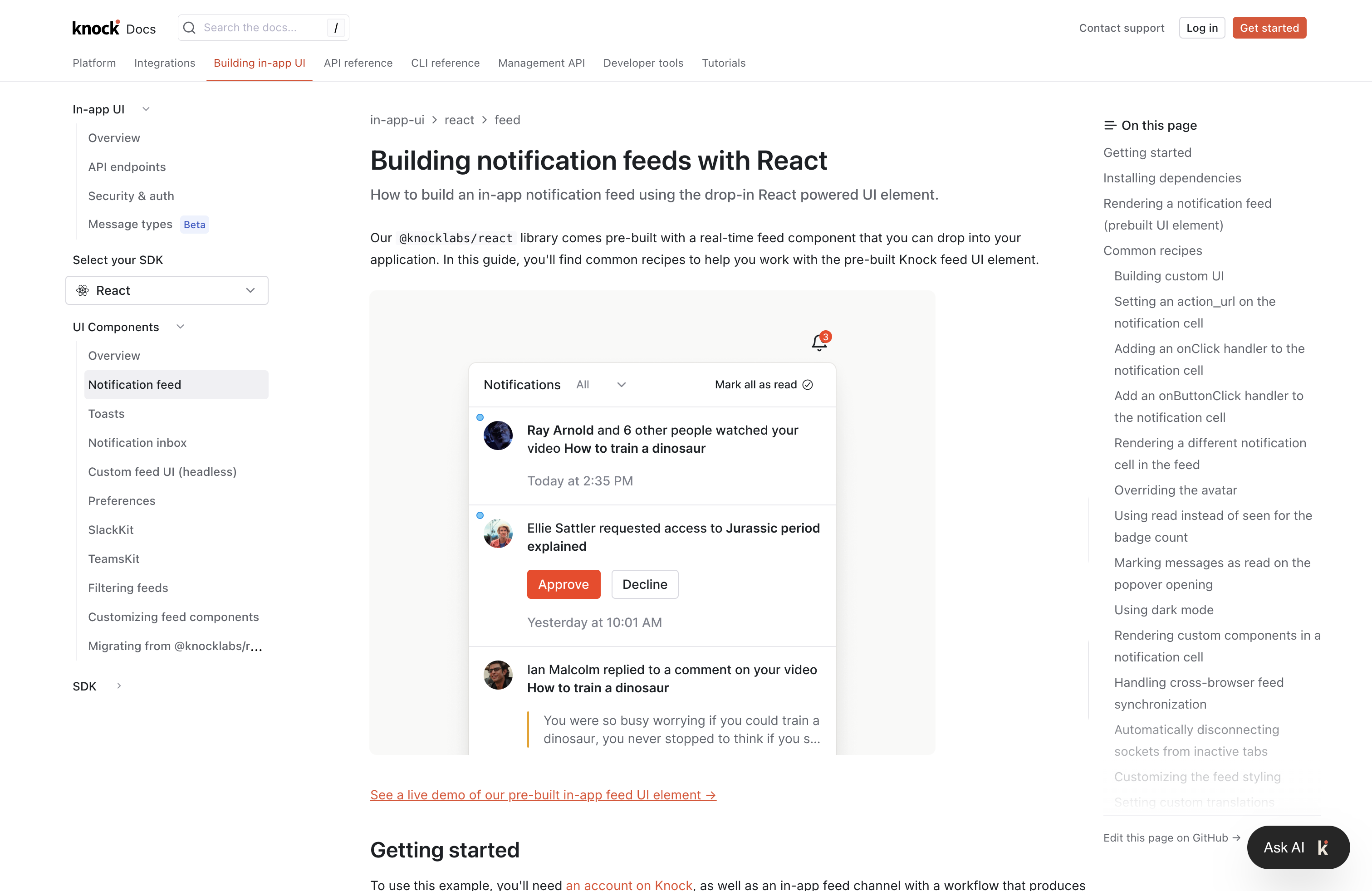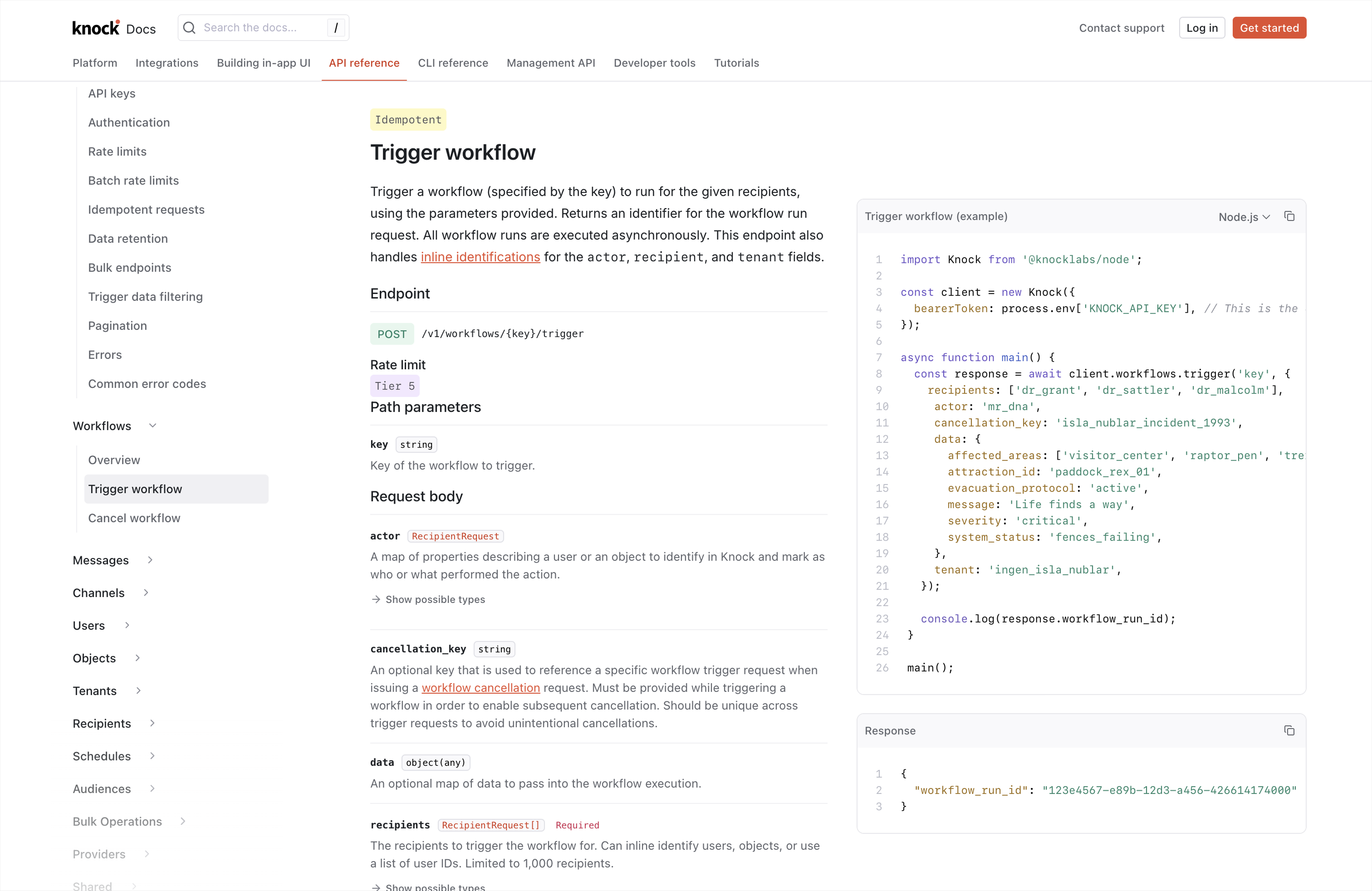
Today we’re announcing two significant upgrades to the Knock developer experience:
- Our new documentation.
- Our new SDKs for Node, Python, Go, Java, and Ruby.
As a developer tool, we’ve long recognized the importance of documentation and SDKs as a foundational part of our developer experience. At Knock, we spend a lot of time writing and creating docs and sweating the details over our API design.
With today’s release, we’re excited to level up our docs and SDK experiences for all engineers working with Knock.
Refreshing our docs design
We first shipped our docs site four years ago along with the initial launch of Knock. Since then, the design hasn’t changed, despite us shipping a lot of new content.
Given how essential docs are to the experience of working with Knock, it was time to refresh the visual design of the docs and reorganize the content to make it easier to navigate.
We reorganized our content into new tabbed sections. We’ve also rebuilt our building in-app UI docs. First, you select your frontend platform, then you can see which components it has available, as well as API references and tailored guides.

We’ve also refreshed our API and management API references, adding new rich typing. In addition to these human-readable changes, we've also added a lot of support behind the scenes for people using LLMs and property support to make it easier to understand requests and responses.

Finally, we moved our documentation components to Telegraph, our internal design system, so it matches the look and feel of our dashboard.
If you’re interested in peeking behind the curtains for these changes, our docs are open source and available here.
Making our docs LLM ready
In addition to our redesign, we’ve also retooled our docs to serve the needs of LLMs and AI tooling.
- llms.txt and llms-full.txt support. We added support for the upcoming llms.txt standards, to help make our documentation accessible to the current and future generations of LLMs.
- Markdown page support. All of our docs pages are now generated as static .md files, making it easy to feed this content directly to an LLM.
- Copy docs pages. We’ve added a control to every docs page to make it easy to copy the page contents to paste into a chat for an LLM.
- Adding a RAG API endpoint. We’ve also built in a new RAG endpoint for our docs in our Agent Toolkit and MCP server so that LLMs can easily query and get answers from our docs.
New SDKs for Node, Go, Python, Java, and Ruby
Strongly typed, IntelliSense-ready SDKs are now table stakes for a developer tool company in 2025. Unfortunately, the pre-1.0 releases of our SDKs had gaps in their typing or omitted types altogether in the case of our Python and Ruby SDKs.
Today, we’re proud to release the 1.0 versions of our SDKs in Node (Typescript), Go, Python, Java, and Ruby. These new SDKs are richly typed and include all resources across our API. In addition to typing, they include retries, auto-pagination, customizable logging, and configurable timeouts.
We’ve chosen to partner with Stainless to generate our SDKs, providing a best-in-class developer experience and reducing the burden on our team to update them going forward.
If you’re a current SDK user, our migration guides will help you upgrade to the 1.0 releases of our SDKs. We’re also anticipating that our PHP and .NET SDKs will be generated via our OpenAPI specs by Stainless in the second half of this year.
New management API SDK
In addition to our new SDKs, we also took the opportunity to release a new management API SDK for Typescript using the same auto-generation approach powered by Stainless.
Our management API provides a programmatic way to control your Knock account and its resources. With our new @knocklabs/mgmt SDK, it’s easier than ever to start building tooling on top of Knock. In fact, this new SDK powers our Agent Toolkit.
Powered by our OpenAPI spec 🚀
This release is underpinned by our move to adopt the OpenAPI spec for our public and management APIs. A well-documented API is essential for building type-safe SDKs and robust documentation that’s always in sync.
We’ve invested heavily in automating a pipeline around our OpenAPI specs that powers doc updates and SDK changes automatically as part of a production release. This reduces the team's effort to near zero and ensures that API changes are always reflected in our docs and SDKs.
We couldn’t be more excited about the changes here, both as a way to improve our team's quality of life and as a foundation for our best-in-class developer experience going forward.
You’ll find the OpenAPI spec for our API here, and our management API here.
Our new docs and SDKs are available today. We’re excited to ship more changes here in the future and can’t wait to hear your feedback.